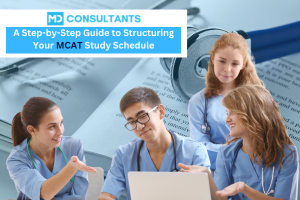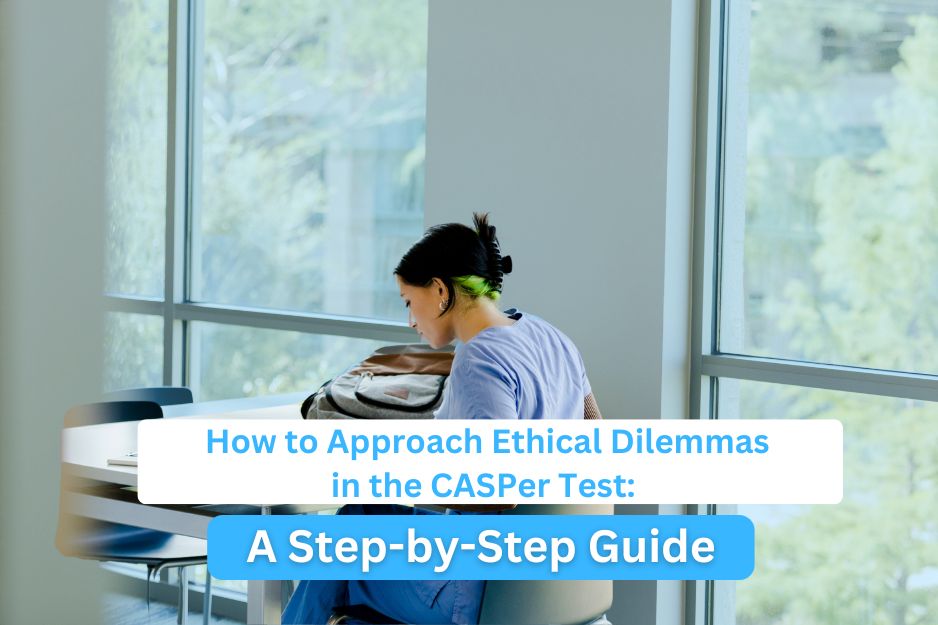Applying to medical school in Canada is no small feat. With limited spots and thousands of highly qualified applicants, each step of the admissions process can feel daunting. While strong grades, a competitive MCAT score, and meaningful extracurriculars are essential, one of the most decisive moments in your application journey is the medical school interview. This is where your application comes to life—where admissions committees assess not only your academic potential but also your character, communication skills, and suitability for the profession.
In this comprehensive guide, we’ll walk you through everything you need to know about preparing for your Canadian medical school interview, from understanding the interview formats to practicing effectively, avoiding common mistakes, and showcasing the qualities schools are looking for.
Why the Interview Matters
Your interview is the admissions committee’s opportunity to evaluate qualities that aren’t reflected in numbers alone. While your GPA and MCAT show your academic readiness, the interview reveals your interpersonal skills, maturity, and motivation for medicine. Canadian medical schools value applicants who demonstrate empathy, professionalism, ethical reasoning, and a genuine commitment to patient care. Even if you have stellar grades, a weak interview performance can cost you an offer of admission.

Conversely, a strong interview can sometimes offset a slightly weaker academic profile, especially if you embody the qualities that schools value most. This makes interview preparation just as important as MCAT prep or perfecting your personal statement.
Types of Medical School Interviews in Canada
Canadian medical schools use a variety of interview formats. It’s important to know which type your chosen schools use, as your preparation strategy will differ.
1. Traditional Panel Interview
- Format: Usually conducted by a panel of two or three interviewers (faculty, physicians, or students).
- Duration: 30–60 minutes.
- Style: Open-ended questions about your background, experiences, motivations, and ethical reasoning.
- Schools: University of Toronto, University of Ottawa (among others).

Example Questions:
- Why do you want to be a doctor?
- Tell me about a time you worked in a team.
- How would you handle a patient who refuses treatment?
2. Multiple Mini Interview (MMI)
- Format: A series of short stations (usually 8–12), each lasting 6–10 minutes.
- Stations: Scenarios may involve ethical dilemmas, role plays, teamwork tasks, or policy discussions.
- Schools: McMaster University (pioneer of the MMI), University of British Columbia, University of Calgary, and others.
Example Scenarios:
- You are a medical student witnessing a classmate cheating—what do you do?
- Role-play: Convince a hesitant patient to consider a flu vaccine.
- Discuss: Should medically assisted dying be expanded in Canada?
3. Hybrid Models
Some schools use a blend of traditional and MMI formats. For example, the University of Toronto incorporates both panel and scenario-based questions.
How to Prepare for the Medical School Interview
1. Know Your Application Inside and Out
Every experience you listed on your application is fair game. Be prepared to discuss your extracurriculars, research, volunteer work, and personal statement in depth. Interviewers often ask, “Tell me about your experience working at XYZ” or “What did you learn from this volunteer role?”.
- Reflect on key experiences: What skills did you develop? How did they shape your interest in medicine?
- Be specific: Avoid vague answers—use concrete examples.
- Connect to medicine: Show how your experiences relate to qualities needed in healthcare.
2. Understand the CanMEDS Roles
Canadian medical schools often frame their evaluation around the CanMEDS framework, which identifies key physician roles:
- Medical Expert
- Communicator
- Collaborator
- Leader
- Health Advocate
- Scholar
- Professional
When answering questions, aim to demonstrate these qualities naturally. For example, a teamwork question is an opportunity to highlight your collaborator role, while discussing a community service project may show your commitment as a health advocate.
3. Practice Ethical Reasoning
Many interview questions or MMI stations involve ethical dilemmas. While you don’t need to know every detail of medical law, you should be able to think critically, show empathy, and balance different perspectives.
Tips for Ethical Scenarios:
- Identify the stakeholders (patient, family, healthcare team, society).
- Acknowledge conflicting values (autonomy vs. beneficence, confidentiality vs. safety).
- Show that you can reason through the issue respectfully and thoughtfully.
4. Develop a Framework for MMI Questions
Because MMIs are timed, structured answers are crucial. One effective approach is the SPIES framework:
- S: Seek information
- P: Patient safety
- I: Initiative
- E: Escalate if needed
- S: Support
Another common method is STARR (Situation, Task, Action, Result, Reflection), which works well for behavioral questions.
5. Practice Communication Skills
Interviewers assess not only what you say but how you say it. Strong communication includes:
- Clear, concise explanations
- Active listening
- Appropriate tone and body language
- Empathy in responses
Consider practicing with a peer, mentor, or even recording yourself to review your body language and speech clarity.
6. Stay Informed on Healthcare Issues in Canada
Many interviews test your awareness of current events in healthcare. Topics may include:
- Wait times in the healthcare system
- Physician shortages in rural areas
- Indigenous healthcare access
- Ethical implications of new technologies (AI in medicine, genetic testing)
You don’t need to be an expert, but having a general understanding will show that you’re engaged and thoughtful about the field.

7. Do Mock Interviews
Nothing prepares you better than practice under realistic conditions. Arrange mock interviews with:
- Friends or mentors
- Career centers at your university
- Professional coaching services
Simulating timed MMIs or panel interviews helps reduce anxiety and improves performance.
Common Interview Mistakes to Avoid
Even strong candidates can stumble if they aren’t careful. Watch out for these pitfalls:
- Rambling answers: Keep responses structured and concise.
- Over-rehearsed responses: Sounding scripted can hurt authenticity.
- Neglecting non-verbal cues: Avoid closed-off body language or lack of eye contact.
- Not answering the question: Stay focused on what’s being asked.
- Speaking negatively about others: Maintain professionalism at all times.
Sample Practice Questions
Here are some questions you can use to guide your preparation:
Traditional Panel Style:
- Why do you want to be a physician instead of another healthcare professional?
- Tell me about a time you dealt with conflict in a team.
- What challenges do you see facing the Canadian healthcare system?
MMI Style:
- A patient refuses life-saving treatment—how do you approach the situation?
- Debate whether the government should fund alternative medicine.
- Role-play: A colleague is consistently late to work—address the issue.
Final Tips for Success
- Be authentic: Admissions committees want to know the real you.
- Stay calm under pressure: Composure is key, especially in timed MMIs.
- Practice, but don’t memorize: Prepare frameworks and ideas, not scripts.
- Get feedback: External perspectives help you refine your answers.
- Remember it’s a conversation: The best interviews feel natural, not like interrogations.
Final Thoughts
Preparing for your Canadian medical school interview is a journey that requires self-awareness, strong communication skills, and structured practice. By anticipating common questions, understanding the values schools look for, and practicing regularly, you’ll feel more confident walking into the room.
If you’re looking for expert guidance tailored to Canadian medical school interviews, MD Consultants Prep offers personalized coaching, mock interviews, and insider strategies to help you stand out. Working with experienced mentors can give you the competitive edge you need to succeed in this critical step toward becoming a physician.


